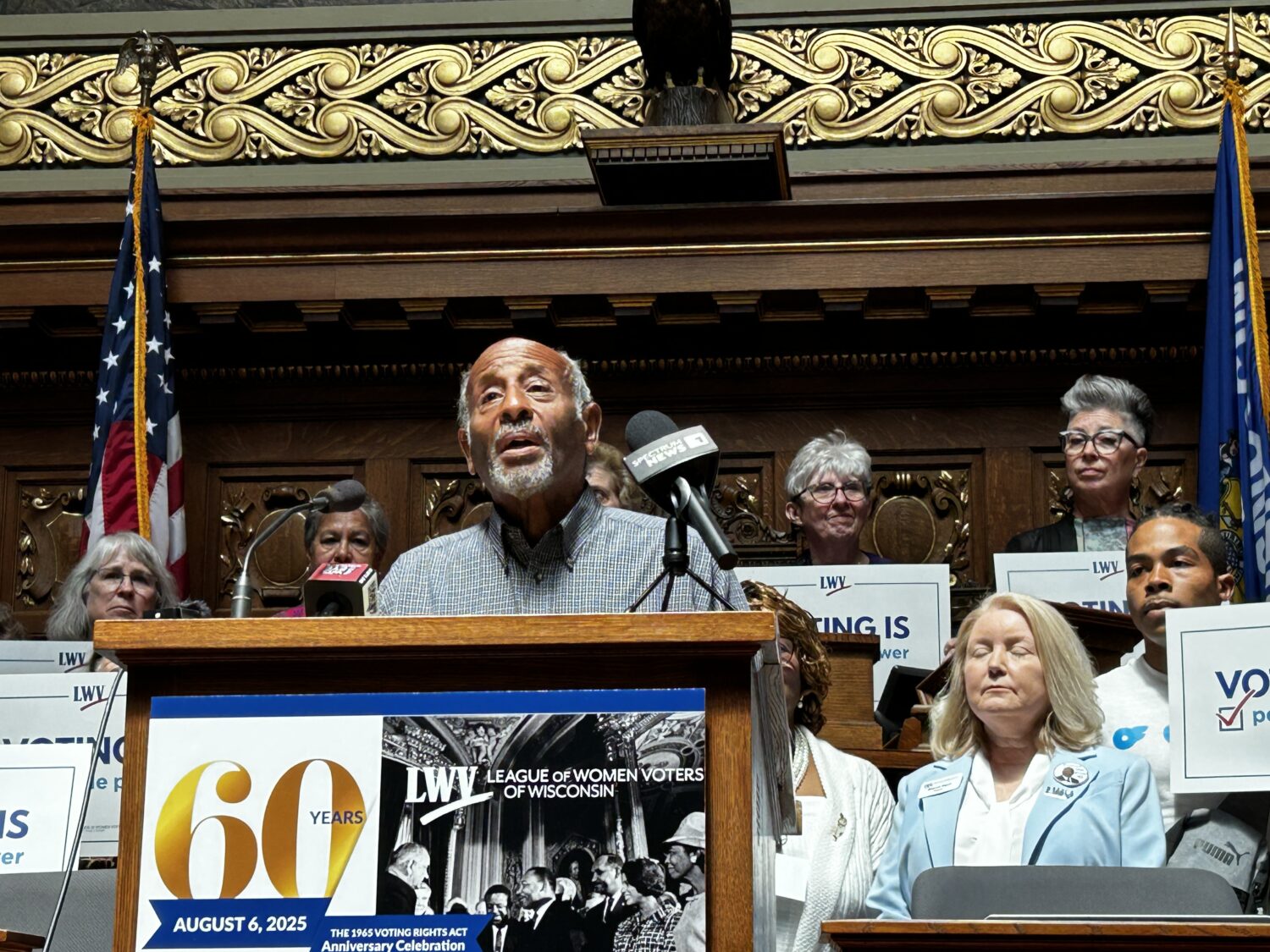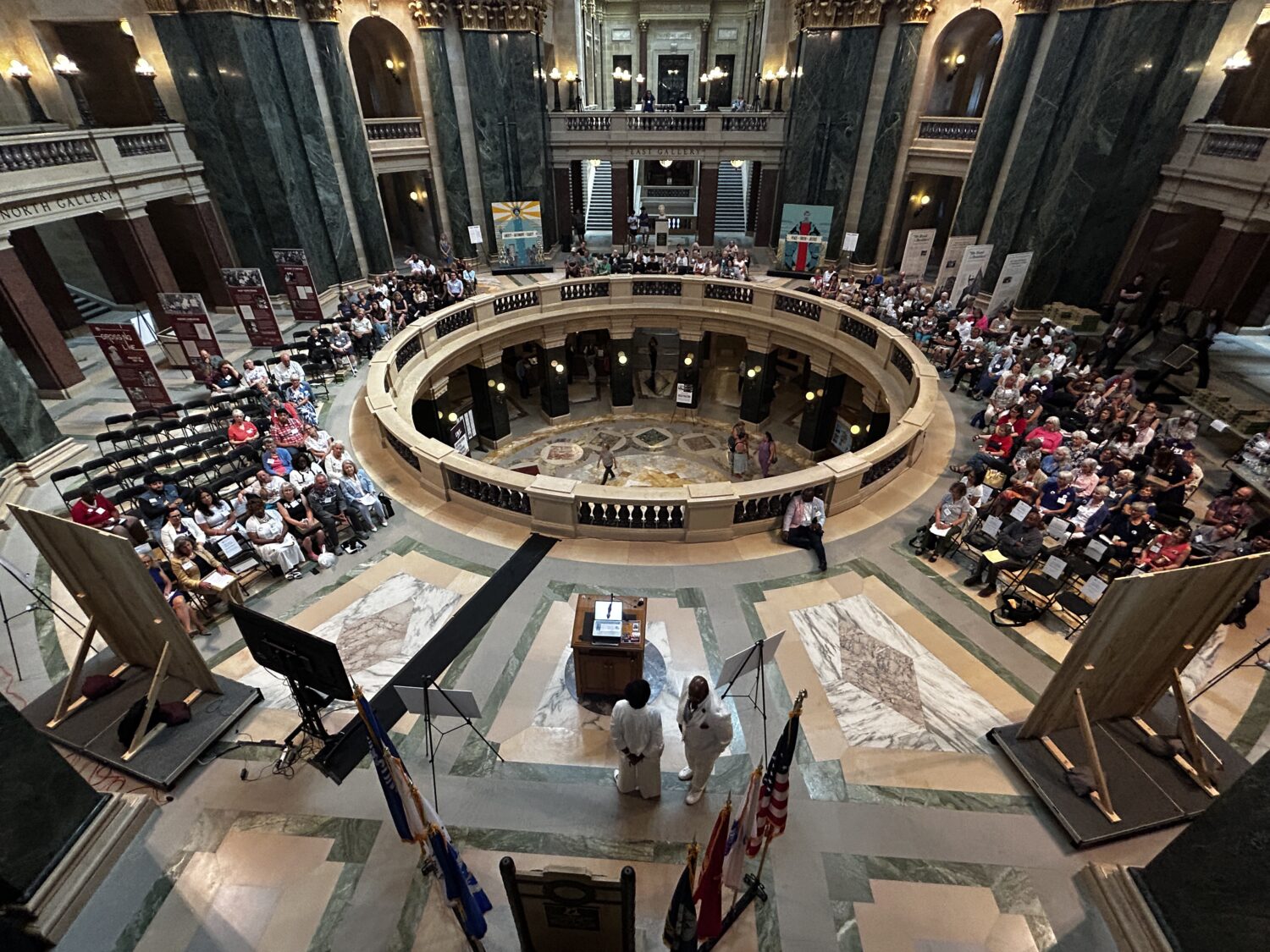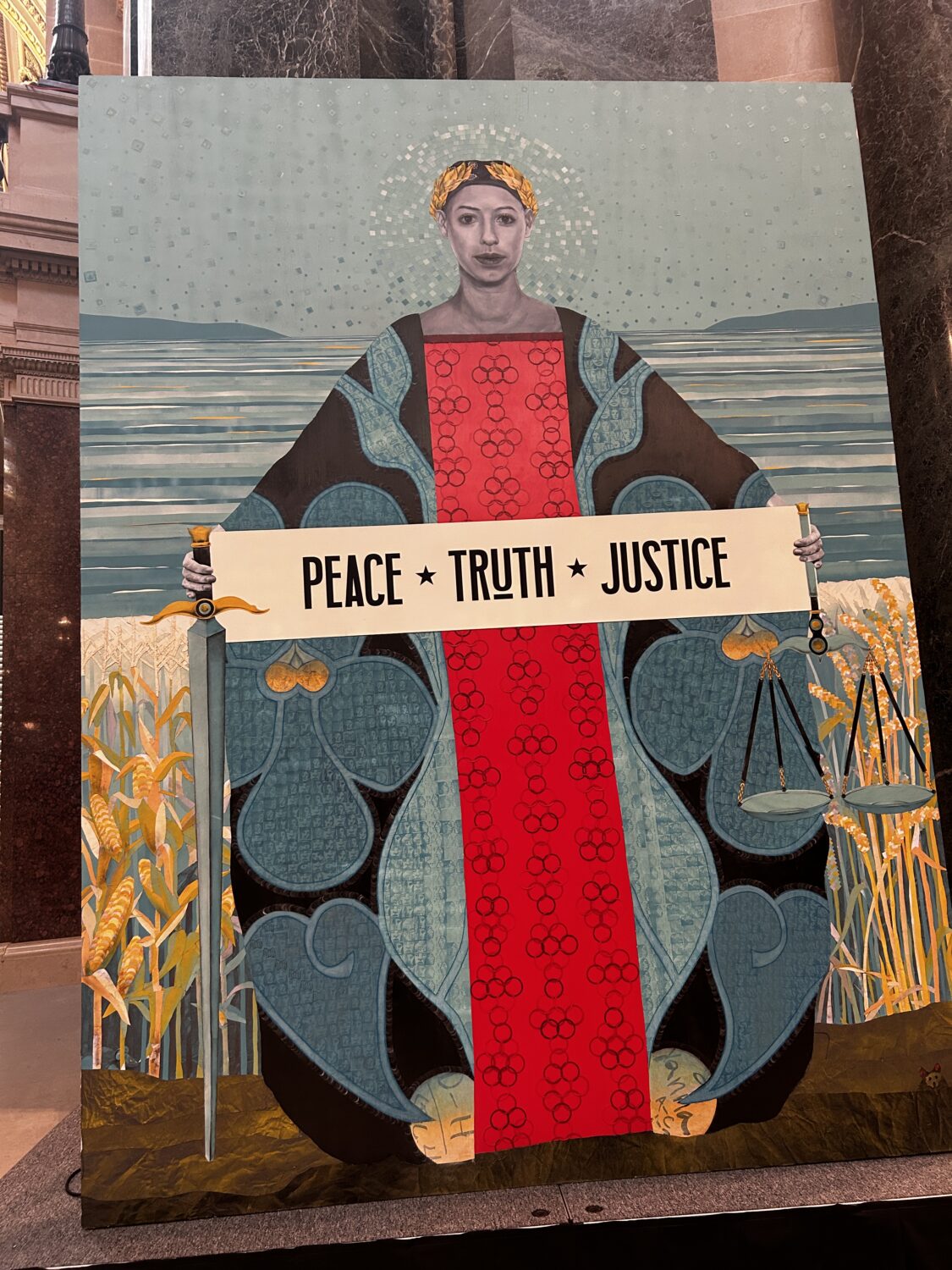
Hundreds of people converged on the State Capitol Wednesday to celebrate the 60th anniversary of the Voting Rights Act, and to warn that many of the rights it guaranteed are now under threat.
“Democracy is facing existential threats, and that includes attacks on our voting rights,” said Debra Wynn, president of the League of Women Voters of the United States, which declared a Constitutional crisis earlier this year. The League of Women Voters of Wisconsin hosted the event.
The Voting Rights Act of 1965 is a landmark piece of federal legislation in the United States that aimed to eliminate racial discrimination in voting. Signed into law by President Lyndon B. Johnson, the act outlawed literacy tests and other discriminatory practices that had been used to suppress the vote of African Americans, especially in the South. It also gave the federal government the power to oversee voter registration and elections in areas with a history of disenfranchisement. Widely considered one of the most effective pieces of civil rights legislation, the Voting Rights Act helped secure the right to vote for millions of Americans. The law was one of many outcomes of the Civil Rights Movement of the 1960s.
At a midday press conference during the daylong event, Margaret Rogza, a Milwaukee native who volunteered to register people to vote in Alabama in 1965, recalled working in that movement before and after the law passed. She described harassment and intimidation over the summer that all stopped after August 6, when the law was signed.
“All of that (harassment) stopped,” she said. “People who came to register got registered, and I don’t think that was because everybody in the county suddenly saw the error of their ways … voting rights laws do make a difference, especially when enforcement is immediate and visible, especially when just laws are celebrated.”
Recent Supreme Court decisions have significantly weakened key provisions of the Voting Rights Act. The 2013 Shelby County v. Holder decision gutted the preclearance requirement, allowing states to implement restrictive voting laws without federal oversight, while the 2021 Brnovich v. DNC ruling made it harder to challenge discriminatory voting practices under Section 2. Together, these rulings have made it more difficult to protect voters, especially voters of color, from disenfranchisement. That’s part of what prompted the LWV to call the current state of American democracy a “Constitutional crisis.”
“The League of Women Voters is not mincing any words,” said Karen Nelson, a member of the LWV and organizer of the anniversary event. “Stop believing the hype. We are not near one, we’re not at the line, we’re not near the envelope. We are in a constitutional crisis in this country right now.”
“The fight continues today,” said Wisconsin Black Historical Society Executive Director Clayborn Benson. “Voter ID, incarceration, poll closures … there are always ways to disenfranchise people. This anger within our people, being disenfranchised, passes its way into many areas of our lives.”
The event featured “Pillars of Democracy,” a new art installation by activist and artist Nikki Johnson. It consists of four large paintings to represent the concepts of liberty, justice, freedom and the state motto, “Forward,” each depicting a different young woman who voted for the first time in 2024.
“Pillars of Democracy… is a reminder that the fight for voting rights did not end in 1965. It is ongoing, evolving and collective,” Johnson said.
“Today’s event is both a celebration and a call to action,” said LWV of Wisconsin Executive Director Debra Cronmiller. “Federal and state legislators must be held accountable to represent us, not donors or parties … The people have the power, and we must use it.”
“The cost of fighting for justice today is maybe some inconvenience and some discomfort,” Wynn said. “But people in the Civil Rights Movement risked their very lives.”
Cronmiller said getting involved to protect against threats to democracy can be as simple as talking to neighbors about the importance of voting, or writing to legislators to encourage them to protect voting rights.
“Be active. Get out of your house. Stop sitting on your hands and talk to people,” she said. “Doing anything… connecting with your neighbor, your legislator, attending a forum… you are part of the movement.”





